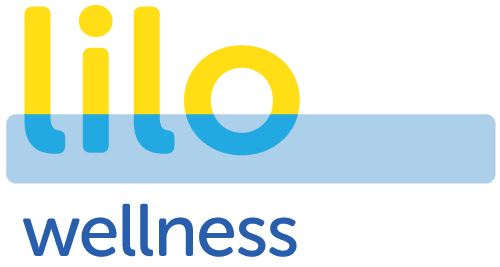
03 Mar Self-care is not the be-all and end-all

Photograph: Alex Tihonov/PR
You know the drill. If you’re stressed, it’s your fault. You just need to relax more and practice ‘self-care’ more. While I’m a big advocate of doing nice things for yourself and trying to live in a way that aligns with ‘wellbeing’ in the broadest sense, there are a few problems with this idea and they’re particularly relevant to those of us with ADHD or other brain differences.
In a nutshell, it can be too easy to judge those who are struggling as not looking after themselves. We are in danger of blaming others for being strung out and for not ‘having their sh*t together’.
I remember a friend of mine telling me she went to a doctor when she was parenting a toddler–who as it turned out was later diagnosed with severe ADHD–and discussed with him that she was finding things incredibly difficult.
His response was something along the lines of, “you’ve just let yourself go. You’ve let motherhood get the better of you”. Really…?
This story is truly horrifying and, thankfully, most GP’s are much more insightful, compassionate and less chauvinistic.
Don’t get me wrong. Self-care is important. But let’s face it, when things get really tough it’s often the first thing that goes. We go into survival mode, where all we can manage is getting the essentials done. Time and energy for nurturing our own needs is nowhere to be found.
In reality, it is very challenging for many of us juggling family and work to find time to exercise, eat healthy meals, read a good book or get into the garden, let alone meditate. And as I found out the hard way, all the self-care in the world is not enough when parenting one child or more with special needs, and things are super tricky.
For many parenting solo, all or even part of the time, or if your child has additional care needs, it’s virtually impossible to self-care.
This is where community-care comes in.
Caring for one another, reaching out when someone is having a rough time, offering to cook a meal, donating goods or time to good causes, looking out for neighbours who are elderly or live alone.

Self-care as self-preservation
The concept of self-care is, unsurprisingly, very self-oriented, very individualistic, and has a fascinating history as this Guardian article explains:
“It was first used in 1988 by black lesbian feminist Audre Lorde, while fighting against cancer and the political status quo. She wrote ‘caring for myself is not an act of self-indulgence, it is self-preservation, and that is an act of political warfare’”.
This is how I thought of self-care – putting your own oxygen mask on first so you can positively impact the world around you – until I researched the popular use of the term further.
The article goes on.
“Self-care was very appealing for women who were overwhelmed, women who were sick, women who were crushed under the weight of the emotional and physical labour of running a household and working and maintaining a family and friendship, women who were burning out. Which is basically most women.” Oh yeah, I sure can relate to this.
However, in the contemporary context it appears to have morphed into something else. When I checked Instagram just now, there are 24 million posts (!) with #selfcare mentions.
Scrolling through the top posts there are dozens of inspirational quotes of the self-improvement kind and a whole host of young women posing provocative selfies, a few face-mask shots and, refreshingly, one with two men in it. But, otherwise, the theme here is clear. #Selfcare means women should strive to be youthful and flawless inside and out.
So, in fact, what I’m often on about—caring for yourself as if you were caring for a treasured loved one—is perhaps better described as self-preservation. Although even this makes me think of eternal youth as being the goal, but it’ll do.
My little family has been through some tough times over the last few years and self-preservation has been entirely necessary or I seriously have zero idea how I’d have got through it. But, really, what I needed more of in these times was community care—or what The Guardian article quoted above refers to as ‘collective care’.
Things are so much better for my little family these days. Harry, my autistic son, sleeps through instead of waking at 1, 2 or 3am and not getting back to sleep, night after night. He’s not having up to fifteen major meltdowns a day and spitting, kicking, biting and shitting everywhere.
I needed my community to step in so badly in at times. Sadly, it was thin on the ground when I really needed support—someone to help with my son when I had had no sleep and his behaviour was horrendous day after day after day.
It was an extremely traumatic time and the stress I was under is hard to put into words. I didn’t even know it at the time but I had become a carer of a pre-schooler with complex special needs. All the while I was also turning up in my business, trying to convince myself as well as everyone else that I was fine.
There was good reason for why I didn’t get much help. Half my family lives out of town, my dad was very unwell and my mum, who was caring for him, was the priority for the one sister who does live nearby.
When Harry was ill, sometimes for weeks or even months on end—the worst times in which he had a number of large seizures—we’d be almost quarantined, barely seeing a sole. Even though I had family nearby, I was incredibly isolated.
I survived this period because of phone calls with sisters and my dearest girlfriend. But when it came to practical support, my closest friends also have incredibly full lives with multiple kids, full-time jobs and some with their own children with additional needs.
The way we live in the Western world, in the nuclear family or in single parent families as is the case with us, and with how busy we all are, is often very isolating. It can be very difficult to get or give the help you or others need.
We all go through periods of grief, trauma or crisis at different times in our lives. Some are more obvious than others. When a family member dies or we are diagnosed with a sinister illness or we get divorced.
Others go on for years and play out under the radar. It’s in these times that we need to try to have the courage to ask for help. However, we also need to ask how people are—like really ask. And when someone replies that they’re struggling, that generally that means things are really bad.
Ask them in these situations: What can I do to help? What do you need?
I am lucky to have had this support during an incredibly trying time, because, the truth is, no amount of self-care is going to be enough when circumstances are so difficult for true wellbeing to be possible. Not without community support.
The cool things is, when we give it is good for us and the recipient! And it’s doesn’t have to be hard. Sticking your hand up to do a good deed once in a while is doable for all of us. And we may be the ones who need a hand one day.
Acts of kindness like volunteering are good for us and others. We are social creatures and our wellbeing is absolutely dependant on the quality of human connection in our lives. So collective care really does make a LOT of sense.
I’m still an advocate of for making time to just be, to meditate, exercise, have fulfilling hobbies and time with loves ones. But I also think that in this world where so many of us are crazy busy a fair whack of the time, we need to consciously make choices that connect us to our communities and when we have the capacity, to reach out to others in our community who may need our support..


